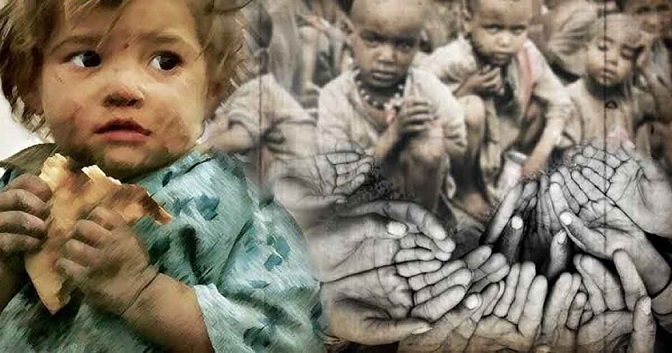- 02-May-23
The disease known as malnutrition arises when the body lacks the vitamins, minerals, and other nutrients necessary to keep healthy tissues and organ function.
When vital nutrients are not consumed in sufficient amounts or are lost more quickly than they can be supplied, undernutrition results. Overeating, eating the wrong stuff, staying sedentary for extended periods of time, and taking excessive amounts of vitamins or other nutritional supplements are all contributors to overnutrition. Being more than 20% overweight or eating a diet high in fat and salt both raise the possibility of overeating.
Malnutrition Meaning in Urdu
مالنٹریشن: یعنی غذائیت کی کمی یا غذائیت سے محرومی، جس سے بد صحتی کے نتائج پیدا ہوتے ہیں۔ یہ غذائیت کی ناکافی شدید قسمیں جیسے کہ کم پروٹین، کیلشیم، وٹامنز یا میٹلز وغیرہ شامل ہوتی ہیں۔ ایک شخص کی جسمانی ضروریات پوری نہیں ہونے کی صورت میں وہ سستی، کمزور، کمزور مزاج یا بیمار ہو جاتا ہے۔
Types of Malnutrition:
There are two main types of malnutrition:
Protein-energy malnutrition (PEM): This occurs when the body does not receive enough protein and energy (calories) from the diet. PEM can manifest in two forms:
- Marasmus: This severe kind of malnutrition is brought on by a sustained deficit in both protein and calories. Extreme weight loss, muscular atrophy, and a compromised immune system are the results.
- Kwashiorkor: This is a type of malnutrition caused by a lack of protein, even if the person is getting enough calories. It results in edema (swelling), especially in the legs and feet, as well as a distended abdomen, hair loss, and skin changes.
Micronutrient deficiencies: This occurs when the body does not receive enough vitamins and minerals, such as vitamin A, iron, and iodine. Micronutrient deficiencies can cause a range of health problems, depending on the specific nutrient involved. Examples include:
- Iron deficiency anemia: This is a common micronutrient deficiency that can lead to fatigue, weakness, and impaired immune function.
- Vitamin A deficiency: This can cause blindness and increased susceptibility to infections.
- Iodine deficiency: This can lead to goiter (enlarged thyroid gland) and impaired cognitive function.
It's important to note that malnutrition can also be a combination of these types, where a person is lacking in both protein and micronutrients.
Malnutrition Symptoms:
Depending on the kind and severity of the disorder, the signs and symptoms of malnutrition might change. However, the following list of nutritional symptoms is common:
- Fatigue and weakness: A lack of essential nutrients in the body can cause a person to feel tired and weak, even with rest.
- Weight loss: Malnutrition can cause a person to lose weight, especially in the form of muscle mass.
- Delayed growth and development: In children, malnutrition can lead to delayed growth and development, both physically and mentally.
- Anaemia: A deficiency of iron or other essential nutrients can lead to anemia, which can cause fatigue, weakness, and shortness of breath.
- Skin problems: Malnutrition can cause skin problems such as dryness, itching, and rashes.
- Hair loss: A lack of protein and other essential nutrients can cause hair loss and brittle nails.
- Weakened immune system: Malnutrition can impair the immune system, making a person more susceptible to infections and illnesses.
- Swelling: Severe malnutrition can cause swelling, especially in the legs and feet.
It's important to note that some of these symptoms can also be caused by other medical conditions, so it's always best to consult with a healthcare provider if you're experiencing any concerning symptoms.
Malnutritional Problems in Pakistan
Pakistan faces a significant malnutrition problem, with high rates of undernourishment, micronutrient deficiencies, and stunting among children. Here are some key facts:
- Undernourishment: Around 18% of Pakistan's population, according to the Food and Agriculture Organisation, is undernourished. As a result, they are unable to obtain enough food to meet their daily energy needs.
- Micronutrient deficiencies: Iron, vitamin A, and iodine deficiencies are common in Pakistan, affecting a large portion of the population. A variety of health issues, such as anaemia, blindness, and diminished cognitive ability, can be brought on by these deficits.
- Stunting: Around 44% of children in Pakistan are stunted, meaning that their growth is severely impaired due to malnutrition. Stunting can have long-lasting effects on physical and cognitive development.
- Poverty and inequality: Malnutrition is closely linked to poverty and inequality, and many of the most affected populations in Pakistan are also the most marginalized. Women and girls, in particular, are often at greater risk due to discrimination and limited access to education and healthcare.
- Climate change and food insecurity: Climate change is exacerbating food insecurity in Pakistan, with more frequent and severe droughts and floods affecting crop yields and food availability.
Efforts to address malnutrition in Pakistan include improving access to nutritious food, providing supplements and fortified foods to at-risk populations, and investing in health and education programs to improve overall well-being. However, progress has been slow, and much more needs to be done to tackle this critical public health issue.
Integrated Medical Care Hospital (IMC Hospital)
IMC Hospital is a well-known organisation and is frequently cited as one of Pakistan's finest medical facilities. With years of experience working in some of the most renowned and well-known medical institutions in the world, the IMC Hospital now has access to a pool of senior, licensing and experienced doctors who are all under one roof. To book an appointment, go to the Integrated Medical Care Hospital (IMC Hospital).

 Map
Map










